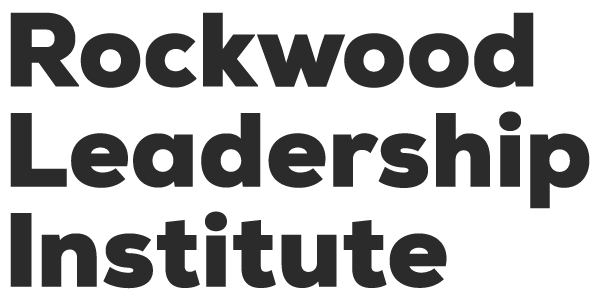
Today marks the third anniversary of Superstorm Sandy. We’re pleased to share a guest post from alum Amanda Devecka-Rinear about how that disaster affected her and started her on a new path.
In August, I stood on a New Jersey boardwalk with State Senate President Steve Sweeney, leaders from the New Jersey Organizing Project, and other amazing organizations from around the state. We were there to celebrate the passage of a law aiding families in recovering from Superstorm Sandy. It’s a law similar to one Governor Chris Christie vetoed twice before, but thanks to leadership from our elected officials and the concerted efforts of organizing and advocacy groups, he finally signed.
Last August, almost a year before that victory press conference, there was no New Jersey Organizing Project. I’d just completed Rockwood’s Yearlong Cross Movement Fellowship and chosen to give the reigns of my professional life over to my purpose. I was beginning to dream about creating a new vehicle for my frontline communities to forge their own solutions in the wake of an extreme weather disaster.
Here’s the backstory: My family has deep roots in the South Jersey shore. The house where my father spent every summer of his life is a cottage my family has owned there since 1929, when the area was still very much home to working class families. A few years before I was born, my dad was able to buy the house directly next to it, and following my parents’ divorce, that was where I lived when I was with him.
The South Jersey shore is the place I’ve always called home, so the damage Superstorm Sandy caused was personal.
My dad works on the water, so he’s able to read the moon, tides, barometric pressure, and wind. Year after year, when a storm rolled in, I would call him with concern and get a curmudgeonly response about meteorologists driving up ratings with drama and a speech about how there was no need to evacuate – he’d be fine.
A few days before Sandy hit, I called him fully expecting our ritual exchange. I’ll never forget his response: ‘This is the one.” He was right and, thankfully, was able to evacuate, but he lost his home – the home I grew up in with him – to the storm.
My partner and I decided it was time to move back and be with family during this challenging time. I had a great job at National People’s Action, and they approved my move. I’d been living in New Jersey for a year when I was fortunate to be selected to participate in the Yearlong Cross Movement Fellowship.
The situation at home moved and agitated me, but despite my pull towards home, it wasn’t until I was asked to truly revisit my purpose during that fellowship that I decided to make a huge leap.
Throughout that year, my inspiring peers and talented trainers asked me to get into my gut and listen to my intuition. And what may have seemed like a crazy idea – that I needed to start anew at home – was treated as an important revelation that I was then given support to hone and articulate.
It’s been three years since Sandy made landfall and our families are still being battered from all sides. I’ve witnessed the aggressive mutation of income inequality that follows a climate disaster. Our members say they have gone broke waiting to get a home while continuing to pay a mortgage and rent, on top of storage fees and taxes. Thousands of tenants are still displaced, and foreclosure rates are on the rise in Sandy-impacted communities. New Jersey’s marquee program for homeowners – the Rehabilitation, Reconstruction, Elevation, and Mitigation program (RREM) – is a well-documented disaster, with only roughly 10% of its participants back home as of today.
But our work at New Jersey Organizing Project over the last year has chipped away at the wreckage the recovery has become. We worked to get rental assistance for families that are out of their homes, assistance that will help many families hang on while they’re waiting. The bill that just passed will increase communication, transparency, and accountability in Sandy recovery spending, and set actual goals to get funding out to the families who need it.
Still, sea levels are rising and extreme weather is becoming the new normal. When those of us affected by Sandy get home, how long until we face a new disaster or challenge? And how prepared are we – not just in New Jersey, but anywhere near the rising tides?
I’ve learned this: climate disasters speed up inequality, but also provide new opportunities to organize. It’s inspiring to be part of the process in which Sandy survivors, many of whom are still not home, have been able to turn to organizing and building power to make change. And I’m happy building a new organization in a less-than-likely place that might provide new solutions beyond our region because I’m working where it’s needed… where I’m from.
